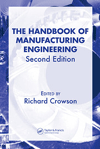A “spirited disagreement” is guaranteed to be part of any discussion of whether there is a shortage-or a career-destroying surplus-of engineers in America. Some hold that the only shortage is engineers willing to work for less than what McDonald’s pays its counter staff. On the other hand, the American Society for Engineering Education (ASEE, Washington) recently reported that 62 percent of the doctoral degrees in engineering awarded by U.S. universities in 2006 went to foreign nationals, compared with only 50 percent in 2000.
More than 80 percent of the respondents to the 2008 State of the Profession survey (ASSEMBLY, July 2008) say their companies will either spend more to improve assembly operations in the next 3 years than last year, or spend the same. They also plan to implement a wide variety of technology new to their plants, and 35 percent have already added staff to their assembly operations. This suggests that-regardless of current economic conditions-American manufacturers might find engineers in relatively short supply in the foreseeable future.
Some elements of corporate America recognize that they have a business interest in developing more homegrown engineers, and are doing something about it. In particular, there is a growing emphasis on nurturing an interest in engineering among a group that is still too often overlooked-girls and women.
The National Science Foundation (NSF, Arlington, VA) has sought for years to broaden the participation of girls and women in science, technology, engineering and mathematics (STEM). NSF research has largely dispelled the myths that girls are less interested in science than boys and that classroom intervention to interest girls in science will turn boys away. Perhaps most importantly, NSF stresses that support from both parents and teachers is crucial to encouraging a girl’s interest in science, engineering and math.
Currently only 20 percent of engineering undergraduates are women, according to the National Engineers Week Foundation (Alexandria, VA), which addresses the profound lack of women engineers with its Introduce a Girl to Engineering Day, held annually during Engineers Week. It’s the only outreach of its kind aimed at and organized by a single profession. This year, a national campaign to encourage young women to explore degrees and careers in engineering was launched as part of “Girl Day.” Called Engineer Your Life, it is produced by WGBH Boston and the National Academy of Engineering in partnership with the Extraordinary Women Engineers Coalition. Learn more atwww.engineeryourlife.org.
Some high schools are already making a difference. The Chantilly Academy (Chantilly, VA) just graduated its first 14 seniors from a program called Girls Exploring Engineering. Girl Scouts of the USA is another organization encouraging its members to embrace engineering as a career path.
All of this bodes well for both an under-represented group that has a lot to offer, and for America’s technological future. As more girls get involved in engineering careers, everybody wins.
Get our new eMagazine delivered to your inbox every month.
Stay in the know on the latest assembly trends.
SUBSCRIBE TODAY!Copyright ©2024. All Rights Reserved BNP Media.
Design, CMS, Hosting & Web Development :: ePublishing


